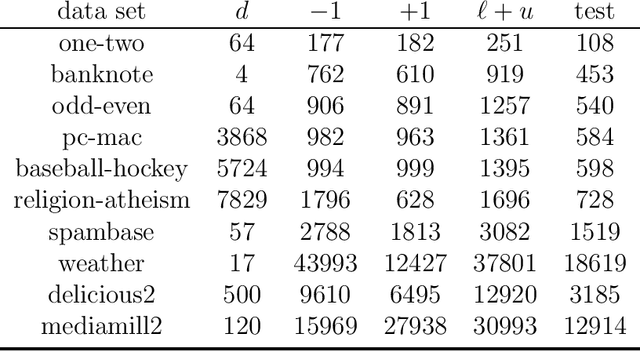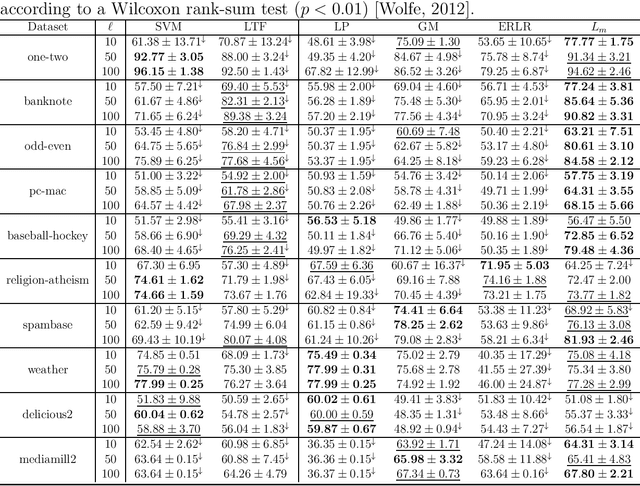Lies Hadjadj
Pool-Based Active Learning with Proper Topological Regions
Oct 02, 2023Abstract:Machine learning methods usually rely on large sample size to have good performance, while it is difficult to provide labeled set in many applications. Pool-based active learning methods are there to detect, among a set of unlabeled data, the ones that are the most relevant for the training. We propose in this paper a meta-approach for pool-based active learning strategies in the context of multi-class classification tasks based on Proper Topological Regions. PTR, based on topological data analysis (TDA), are relevant regions used to sample cold-start points or within the active learning scheme. The proposed method is illustrated empirically on various benchmark datasets, being competitive to the classical methods from the literature.
Self-Training of Halfspaces with Generalization Guarantees under Massart Mislabeling Noise Model
Dec 02, 2021

Abstract:We investigate the generalization properties of a self-training algorithm with halfspaces. The approach learns a list of halfspaces iteratively from labeled and unlabeled training data, in which each iteration consists of two steps: exploration and pruning. In the exploration phase, the halfspace is found sequentially by maximizing the unsigned-margin among unlabeled examples and then assigning pseudo-labels to those that have a distance higher than the current threshold. The pseudo-labeled examples are then added to the training set, and a new classifier is learned. This process is repeated until no more unlabeled examples remain for pseudo-labeling. In the pruning phase, pseudo-labeled samples that have a distance to the last halfspace greater than the associated unsigned-margin are then discarded. We prove that the misclassification error of the resulting sequence of classifiers is bounded and show that the resulting semi-supervised approach never degrades performance compared to the classifier learned using only the initial labeled training set. Experiments carried out on a variety of benchmarks demonstrate the efficiency of the proposed approach compared to state-of-the-art methods.
 Add to Chrome
Add to Chrome Add to Firefox
Add to Firefox Add to Edge
Add to Edge